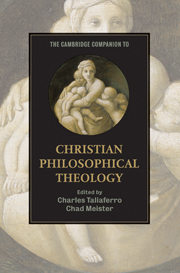8 - Resurrection
from Part II - God in relation to creation
Published online by Cambridge University Press: 28 May 2010
Summary
Resurrection is the notion that after death our bodies will disintegrate but at some future point God will miraculously raise them from the ground and reconstitute us as persons. Christians believe that resurrection comes in two stages. The first stage is the Resurrection of Jesus; the second (the “general resurrection”) is the resurrection of all dead human beings (Acts 24:15). The Christian view of resurrection is based on four assumptions. (1) The existence of a God who has the ability and the intention to raise the dead. (2) The miraculous nature of resurrections; they occur only because God makes them occur. Human persons do not naturally live after death. (3) The existence after death of embodied persons. Resurrection is not an immaterial existence in a world of pure mind or spirit. Raised bodies will be changed (transformed, glorified, made fit for the kingdom of God) but are bodies nonetheless. (4) The identity of those persons with the persons who lived previously. The one who will be raised is the same person as the one who died, not a replica or a “closest continuer.”
- Type
- Chapter
- Information
- The Cambridge Companion to Christian Philosophical Theology , pp. 108 - 123Publisher: Cambridge University PressPrint publication year: 2009
- 1
- Cited by



